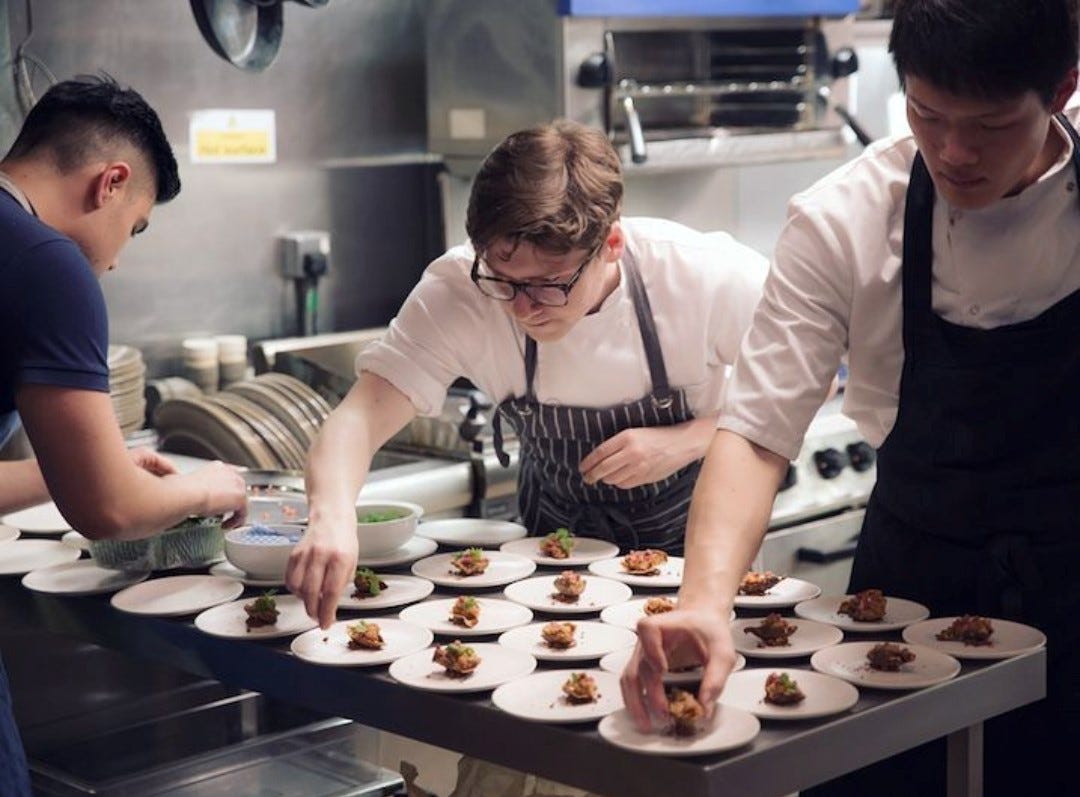How to work like a chef
Find your own... personal... freezers
Hello and welcome to The Recovering Line Cook. If you’re new, thanks so much for subscribing. If you’ve been here before, thanks for sticking with me. It really does mean the world to me.
Last week I announced a new chapter of my newsletter I’m calling the Notebooks of a Line Cook. In these posts, I plan to write about how I cook and what I learned in r…


